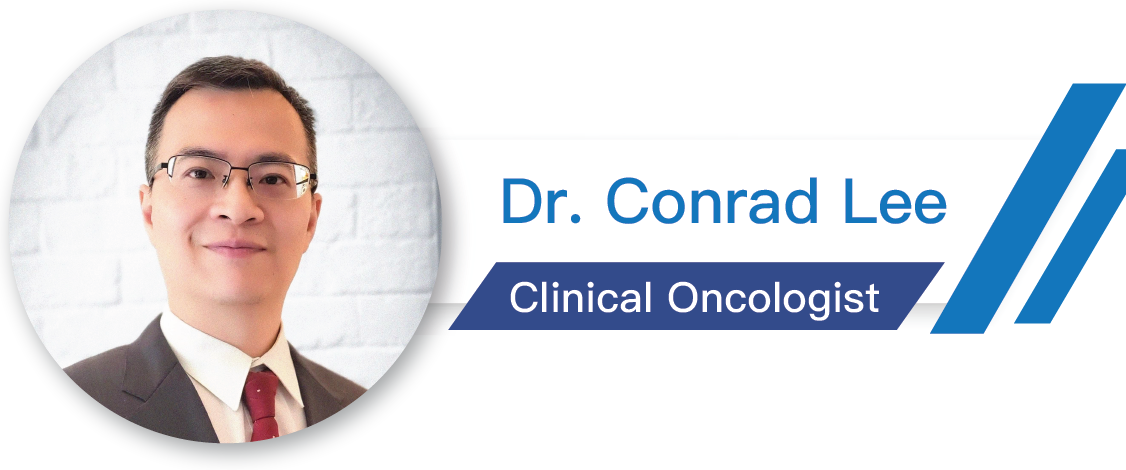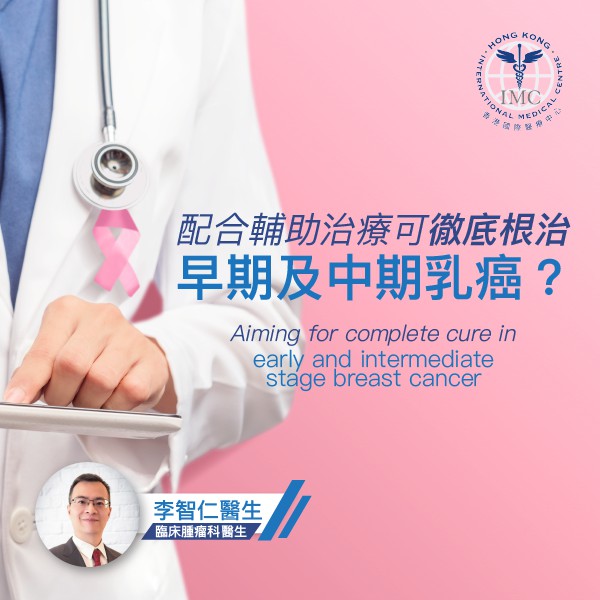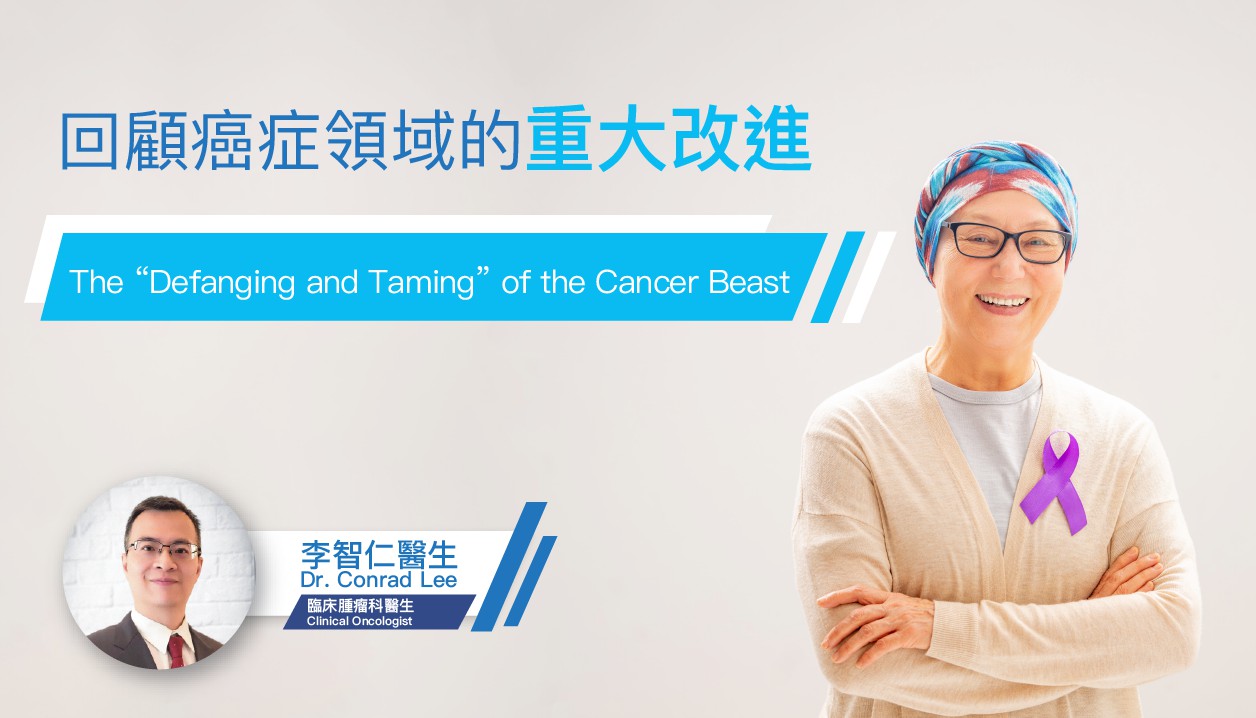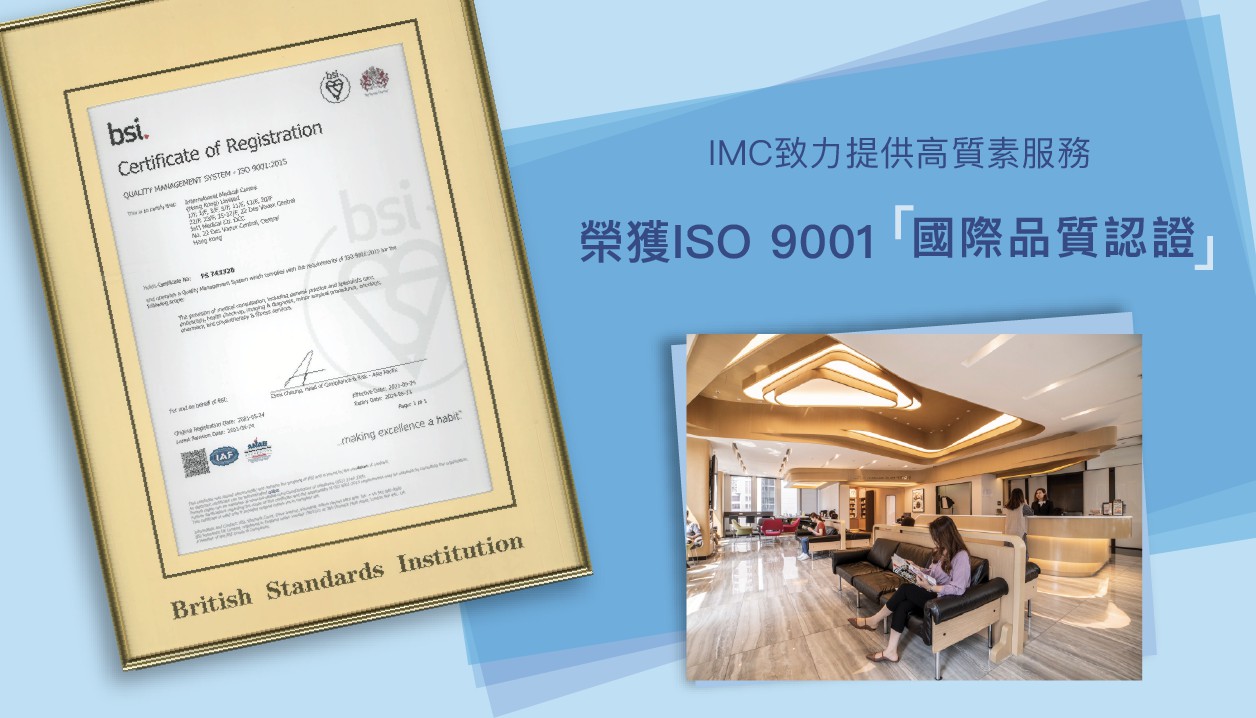Aiming for complete cure in early and intermediate stage breast cancer
Publish date:2020-11-25
Breast cancer is the commonest cancer in women in HK with over 4300 cases in 2017, almost double the incidence of colorectal cancer (the second commonest cancer) in women.
In considering the treatment, it is important to note that treatment is individualised, so it is essential to seek expert medical opinion. However, this article will give a simple overview of the general approach.
In managing breast cancer, we need to ask 3 important questions sequentially:
First question – What stage is the cancer?
In general, for early and intermediate stage cancers, we will aim for complete cure of the cancer. In the majority of cases, this will entail a combination of surgery, medications and in some cases, also radiotherapy. For late stage, although complete cure may not be possible, there are now many treatments that are very effective in shrinking the tumour and significantly improving survival.
Second question – what is the biological nature of the cancer?
Breast cancer is broadly divided into several distinct types depending on the biological characteristics (such as Hormone Receptor Status and HER2 status). Different “types” of breast cancer behave very differently, and require very different medications. The “type” of cancer therefore strongly affects the selection of treatment to be offered. For example, for early stage cancers, even though the common goal is for a complete cure, the treatment plan for each type will be quite different.
Third question concerns the characteristics of the patient – the age and health condition of the patient and her wishes.
Having considered in detail each of these 3 questions, doctors will recommend a personalised treatment plan for each patient.
In general, for early and intermediate stage breast cancers, a combination of treatment is usually necessary. This is because even for early tumours that are successfully and totally removed, the chance of recurrence is still high with surgery alone without the addition of other treatment modalities. The recurrence could either occur locally near or around the original surgery region, or it could occur distantly at far away organs or tissues. Therefore, careful choice of these additional (adjuvant) treatments and close monitoring is essential. These adjuvant treatments could be any combination of chemotherapy, hormone therapy, target therapy and radiotherapy depending on the type of cancer, type of surgery performed and the patient-specific details. This is an area of rapid progress with not only new treatments now available but also new methods of helping select the most suitable treatment. It is a well-established fact that these additional treatments are highly effective in reducing the chance of future recurrence and realising the goal of complete cure in early and intermediate stage breast cancers.
In some cases, especially where the breast tumour is large, drug treatment may be given before surgery. This allows the tumour to shrink to a more manageable size in order to facilitate successful surgery.
In general, tumours that are positive for hormone receptor require hormone treatment. This is given in the form of oral medications to be taken regularly. Tumours that are HER2 positive will require target therapy with anti-HER2 antibody treatment, given by injection or infusion. Chemotherapy may also be required unless the individual patient is deemed to be at low risk for cancer recurrence . All the above treatment can be given in different combinations depending on the individual case.
Radiotherapy, on the other hand, is a local treatment given to the region around the surgical site. It is usually given for patients treated with breast-conserving surgery or those deemed to have high risk of recurrence at or near the surgical site or surrounding lymph nodes. Radiotherapy is usually given as a brief daily treatment over a course of weeks.
Source: Clinical Oncologist, Dr. Conrad Lee

In considering the treatment, it is important to note that treatment is individualised, so it is essential to seek expert medical opinion. However, this article will give a simple overview of the general approach.
In managing breast cancer, we need to ask 3 important questions sequentially:
First question – What stage is the cancer?
In general, for early and intermediate stage cancers, we will aim for complete cure of the cancer. In the majority of cases, this will entail a combination of surgery, medications and in some cases, also radiotherapy. For late stage, although complete cure may not be possible, there are now many treatments that are very effective in shrinking the tumour and significantly improving survival.
Second question – what is the biological nature of the cancer?
Breast cancer is broadly divided into several distinct types depending on the biological characteristics (such as Hormone Receptor Status and HER2 status). Different “types” of breast cancer behave very differently, and require very different medications. The “type” of cancer therefore strongly affects the selection of treatment to be offered. For example, for early stage cancers, even though the common goal is for a complete cure, the treatment plan for each type will be quite different.
Third question concerns the characteristics of the patient – the age and health condition of the patient and her wishes.
Having considered in detail each of these 3 questions, doctors will recommend a personalised treatment plan for each patient.
In general, for early and intermediate stage breast cancers, a combination of treatment is usually necessary. This is because even for early tumours that are successfully and totally removed, the chance of recurrence is still high with surgery alone without the addition of other treatment modalities. The recurrence could either occur locally near or around the original surgery region, or it could occur distantly at far away organs or tissues. Therefore, careful choice of these additional (adjuvant) treatments and close monitoring is essential. These adjuvant treatments could be any combination of chemotherapy, hormone therapy, target therapy and radiotherapy depending on the type of cancer, type of surgery performed and the patient-specific details. This is an area of rapid progress with not only new treatments now available but also new methods of helping select the most suitable treatment. It is a well-established fact that these additional treatments are highly effective in reducing the chance of future recurrence and realising the goal of complete cure in early and intermediate stage breast cancers.
In some cases, especially where the breast tumour is large, drug treatment may be given before surgery. This allows the tumour to shrink to a more manageable size in order to facilitate successful surgery.
In general, tumours that are positive for hormone receptor require hormone treatment. This is given in the form of oral medications to be taken regularly. Tumours that are HER2 positive will require target therapy with anti-HER2 antibody treatment, given by injection or infusion. Chemotherapy may also be required unless the individual patient is deemed to be at low risk for cancer recurrence . All the above treatment can be given in different combinations depending on the individual case.
Radiotherapy, on the other hand, is a local treatment given to the region around the surgical site. It is usually given for patients treated with breast-conserving surgery or those deemed to have high risk of recurrence at or near the surgical site or surrounding lymph nodes. Radiotherapy is usually given as a brief daily treatment over a course of weeks.
Source: Clinical Oncologist, Dr. Conrad Lee









